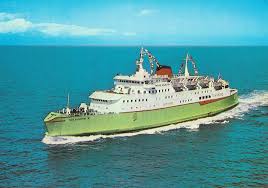Monday 21 December, 2020, Times of Israel.
I live in the Netherlands which will be the last country in West Europe to start vaccinations. I think the over 60s will be vaccinated here at the earliest over 2 months.
All Western European countries will vaccinate old, vulnerable people with the first batches of the Pfizer vaccine, except for the Dutch.
According to the Dutch government, it is logistically impossible to distribute the Pfizer vaccine around the country in a high-quality way.
Therefore, vulnerable old people in the Netherlands will instead receive the later Moderna vaccine, which is some 10% less effective for older people than the Pfizer.
According to the Dutch government, it is logistically impossible to distribute the Pfizer vaccine around the country in a high-quality way.
Therefore, vulnerable old people in the Netherlands will instead receive the later Moderna vaccine, which is some 10% less effective for older people than the Pfizer.
Other countries were ready to distribute the Pfizer vaccine once it was approved.
The Netherlands was ready to start the deliberations with the sectional interest organizations involved with the vaccination process, in order to ensure a careful strategy for the high-quality distribution of the vaccine and high-quality eventual vaccination of some of the Dutch population.
The Netherlands was ready to start the deliberations with the sectional interest organizations involved with the vaccination process, in order to ensure a careful strategy for the high-quality distribution of the vaccine and high-quality eventual vaccination of some of the Dutch population.
The tardiness of the vaccinations does not worry the government or the sectional interest organizations. They say that careful planning and high-quality are more important than speed. Some have also said that a week here or there is not important.
It will make no difference to them, but it will have a negative effect on the death statistics.
However, for the Dutch government and sectional interest organizations, these excess deaths are an inevitable consequence of a careful and high-quality process intended to stop excess deaths.
It will make no difference to them, but it will have a negative effect on the death statistics.
However, for the Dutch government and sectional interest organizations, these excess deaths are an inevitable consequence of a careful and high-quality process intended to stop excess deaths.
There are a few who have had the audacity to question current policy. They point to mediocre leadership, no accountability and a culture of unnecessary constant deliberations as the reasons why the Dutch are so late with the vaccinations.
They were answered succinctly by the director of the Dutch area health authorities.
He said, people who think it could be done faster in a careful and high-quality way do not understand vaccinations.
He said, people who think it could be done faster in a careful and high-quality way do not understand vaccinations.
A damning indictment of the rest of the Western world or an example of the Dunning-Kruger effect?

